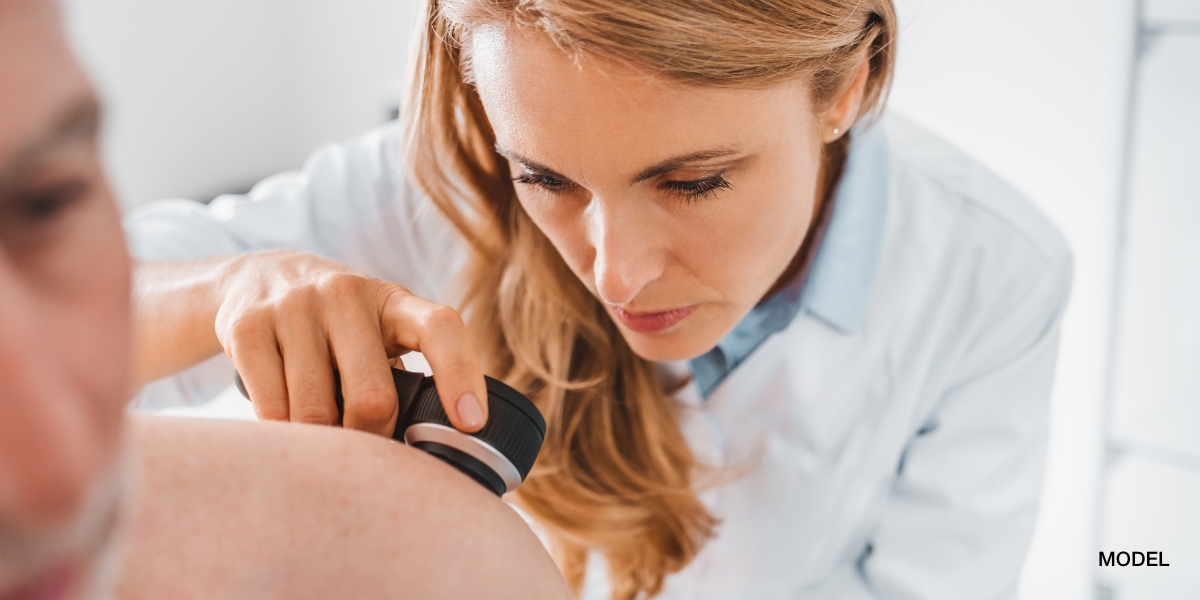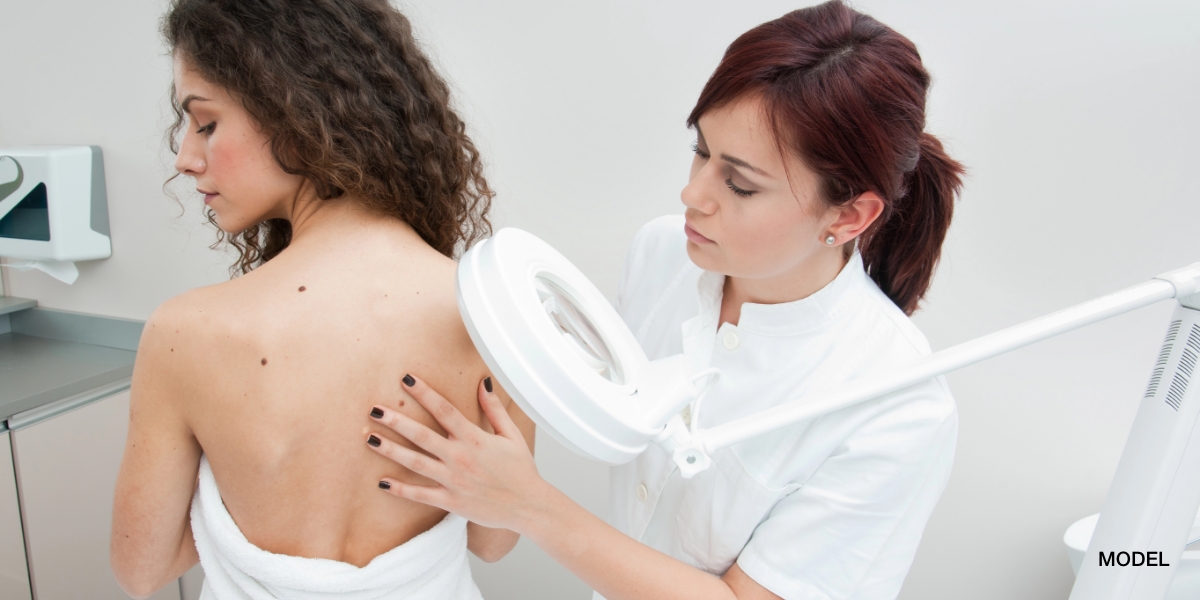 Do you know the top 10 risk factors of skin cancer? Like many residents who visit Dr. Perri for an annual skin cancer screening, you may be shocked to learn that you have several risk factors and don’t even know it. Here is a list of the top 10 risks for developing skin cancer to better educate you on this disease.
Do you know the top 10 risk factors of skin cancer? Like many residents who visit Dr. Perri for an annual skin cancer screening, you may be shocked to learn that you have several risk factors and don’t even know it. Here is a list of the top 10 risks for developing skin cancer to better educate you on this disease.
1. You’re of advanced age.
The older you get, the more likely you are to develop a form of skin cancer. This is why skin cancer screenings are essential for senior citizens.
2. You’re immunosuppressed.
Whether you have an illness associated with being immunosuppressed or you’re undergoing immunosuppressive therapy associated with an organ transplant, your inability to fight off regular colds and viruses also ups your odds of developing skin cancer. We know if you’re fighting a serious disease or preparing for an organ transplant, a skin cancer screening is probably the last thing on your mind. But residents in these situations need to make their skin health a priority, too.
3.You’re male.
If you’re a male, you’re actually more likely than your female peers to develop skin cancer. In fact, research shows that men are two times more likely to develop basal cell carcinomas and three times more likely to develop squamous cell carcinomas than women.
4. You have a fair skin tone.
Anyone can get skin cancer – regardless of skin tone – but those who are fair-skinned are indeed at higher risk. If you have light eyes, especially with blonde or red hair, blue or green eyes, freckles, and if you burn easily, you must visit Dr. Perri every year for a skin cancer screening because these traits are risk factors for skin cancer.
5. You have moles.
Moles are at risk of turning into melanoma, which is the deadliest form of skin cancer. If you have many moles, you need to maintain annual skin cancer screenings, so potential melanomas are identified quickly, which greatly increases your survival rate.
6. You have a family or personal history of skin cancer.
If you have a parent or sibling with skin cancer, you’re at greater risk of developing the disease. Also, if you’ve been diagnosed in the past, beating it once doesn’t mean it can’t come back. Dermatology patients who’ve been diagnosed with skin cancer in the past are at greater risk of developing the condition again.
7. You have an inherited dermatological condition.
Certain inherited dermatological conditions may affect your body’s ability to heal from UV damage. Residents who have these dermatological conditions aren’t just more likely to develop skin cancer but to develop it at an earlier age.
8. You smoke or use other tobacco products.
Tobacco products don’t just increase your odds of developing lung cancer. Smoking, vaping, and using chewing tobacco can also increase your risk of developing skin cancer.
9. You’re frequently exposed to certain cancer-causing chemicals.
Non-melanoma skin cancers may appear if you’re frequently around substances known to cause cancer, including:
- Arsenic
- Industrial tar
- Coal
- Paraffin
- Certain types of oil
10. You’ve had excessive UV exposure.
Excessive UV exposure – whether from the sun or tanning beds – is known to increase your risks of skin cancer. Everyone should wear sunscreen anytime they’re going outside, and you should never use tanning beds.
See Dr. Perri Every Year Regardless of How Many Risk Factors You Have
You may have just realized you have more risk factors for skin cancer than you thought, or you might think the odds are in your favor. No matter how many risk factors you have, it’s important to remember that anyone can develop skin cancer.
If you don’t already have a dermatologist, Dr. Perri would love to care for you. You can contact Perri Dermatology to schedule an annual skin screening with him today at (281) 943-2749.




